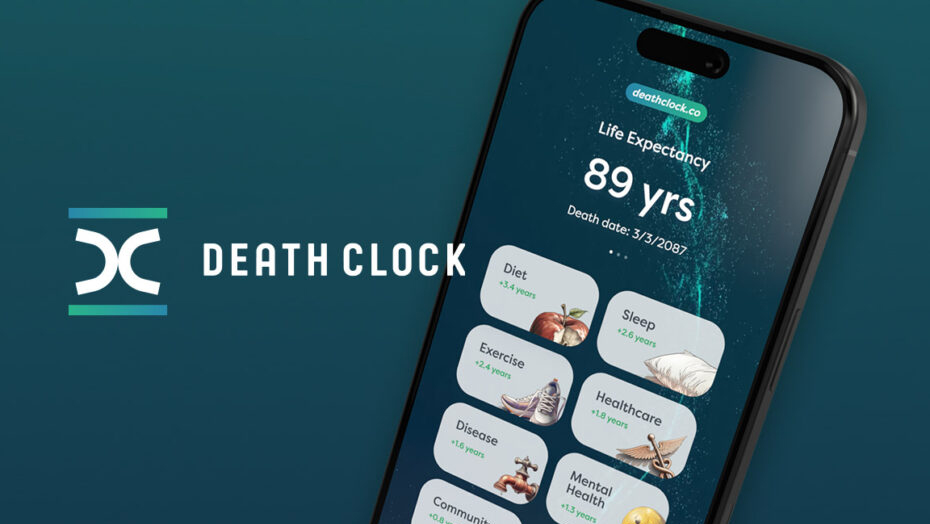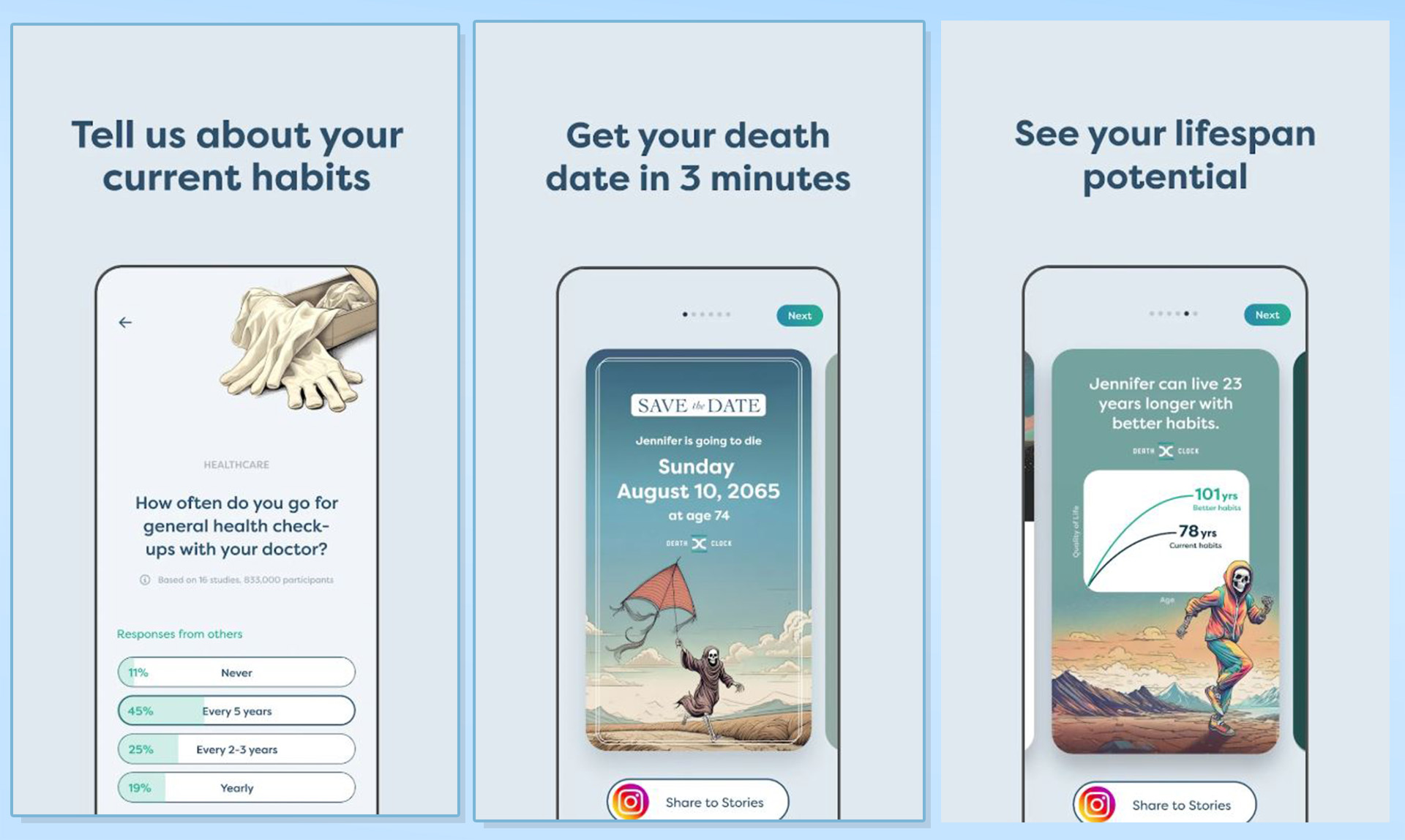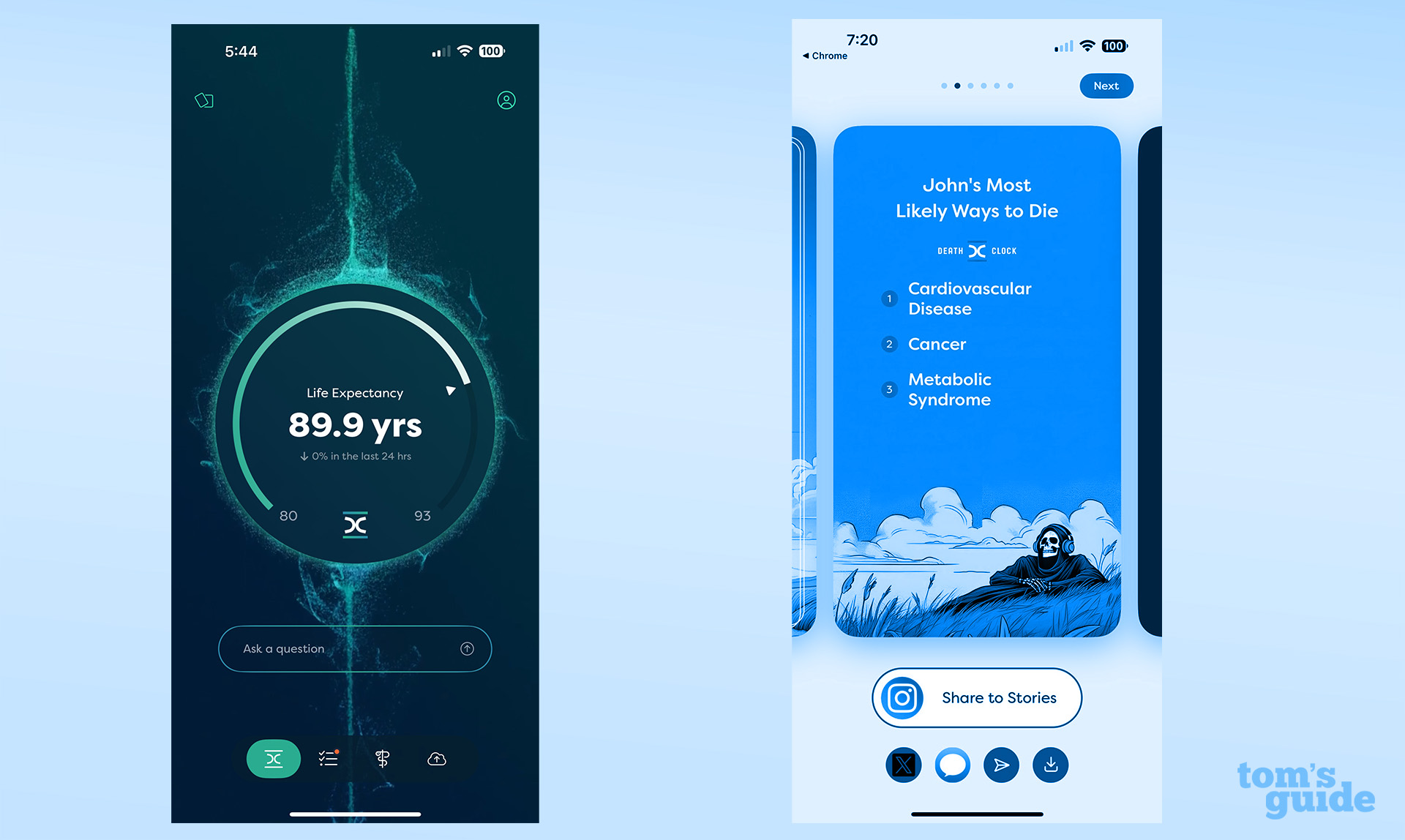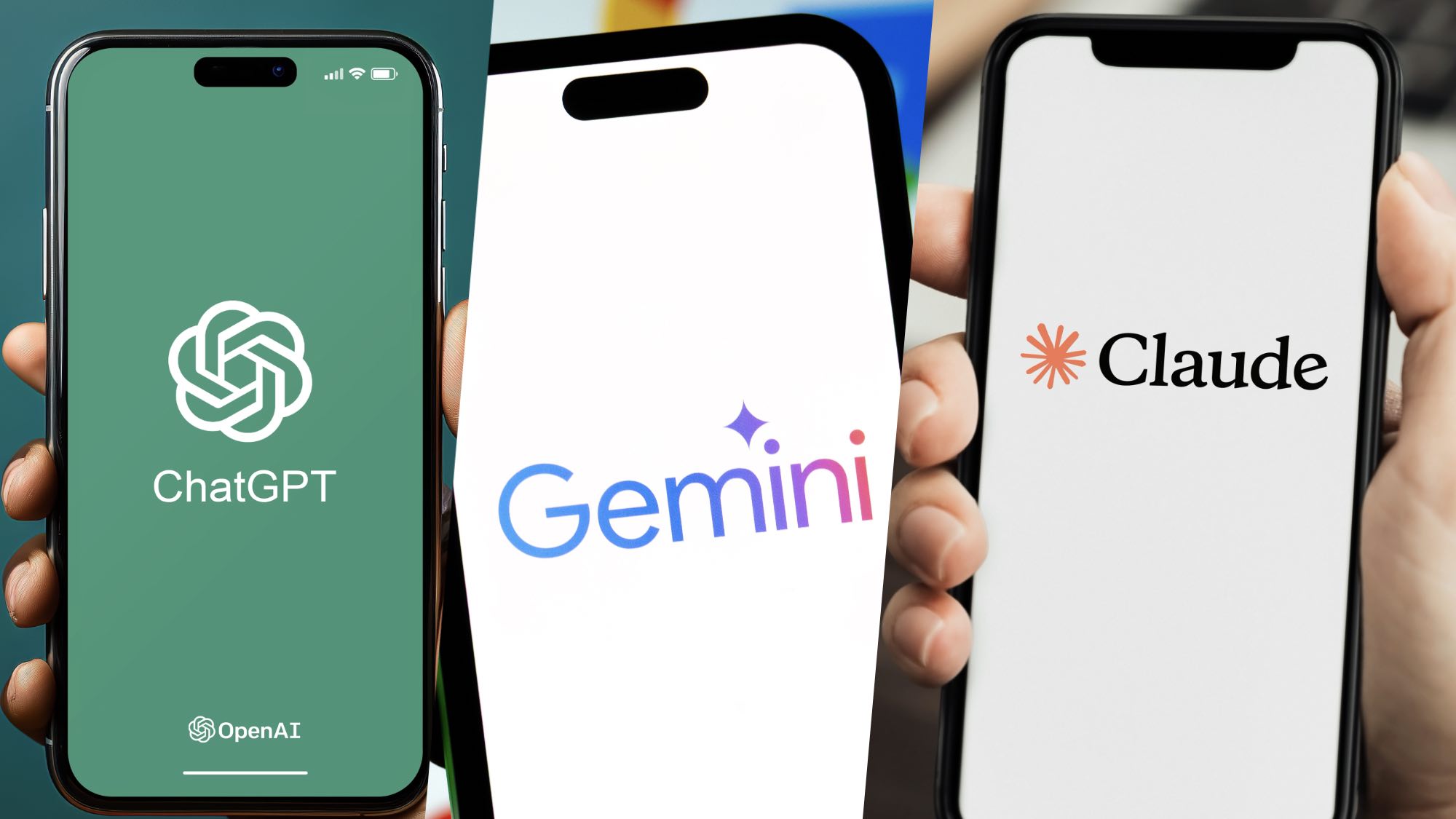I used the viral Death Clock AI app to predict when I'll die — now I want to prove it wrong
It's not as macabre as it sounds

Knowing the exact day and time of your death is something science fiction movies have toyed with for many years. "Minority Report" is the best example, but TV shows like the poorly-named Class of ‘09 on FX starring Kate Mara also touched on similar themes.
Recently, I found out about an app called Death Clock, available for both iOS and Android, that brings those sci-fi themes to life.
While it won’t tell you the exact time of death, the app does predict the day and year of your demise — based on a series of questions and relying on scientific studies about health and fitness. I decided to test it out and was surprised by the results — mostly because it’s now motivating me to prove the app wrong.
Using Death Clock

Once you download Death Clock, you can create an account and start answering the questions right away. Fair warning that the app does force you to sign up for a three-day trial, but you can cancel it before the charges start. (The app is only $40 per year, though.)
I went into this with some fear and trepidation, to be honest. My mother and brother both died at an early age from complications related to diabetes, and I haven’t always lived the healthiest life. I don’t even trust an AI to crunch the numbers about my bank account these days, and ChatGPT isn’t perfectly accurate. Would Death Clock mess up my AI prediction as well?
Turns out, not at all. Somehow, Death Clock guides you through the process with a dose of empathy and understanding. The questions are more open ended. Most of them give you a wide range of options.
Death Clock guides you through the process with a dose of empathy and understanding.
For example, when asked about eating vegetables, I could choose from four different options, from rarely to frequently. A question about lifting weights also gave me an “out” because I could select less than once a week as opposed to rarely or never.
Get instant access to breaking news, the hottest reviews, great deals and helpful tips.
In other words, you’re not locked into an either-or scenario where you feel badly about yourself after answering the questions. “Are you working out a lot or a total couch potato?” is not one of the questions.
I felt good about my answers, and my “death date” seemed reasonable. I did wish the app had explored more of my family history, though. While that might be hard to accept, it’s a reality and worth considering. I suspect Death Clock didn’t want to pry.
Is Death Clock actually useful?

In the end, I did find Death Clock to be useful. My “death date” is not set in stone, and the app goes to great lengths to convince you of that. Essentially, it’s a new spin on a health and fitness app since there’s plenty of guidance about foods you eat and how much you exercise.
The survey data is based on 1,200 life expectancy studies and, while I can’t vouch for their veracity, I can say this is not just a shot in the dark. I went through the app a second time and my results were slightly different. I answered a question about how much I exercise a little more truthfully, for example. Death Clock even made suggestions that would extend my lifespan a bit.
That was where it was most useful — motivating me to take my health more seriously. I recommend Death Clock for that reason. It’s a smart and worthwhile app. For me, the main benefit was in knowing how my choices could impact how long I’m on this planet. It’s also proof that AI is here to help us, not just take away jobs or pretend to be an overlord.
More from Tom's Guide
- I put ChatGPT vs Grok to the test with 7 prompts — here's the winner
- xAI's standalone Grok iOS app launches in the US — here's how to find it
- I tried the open source AI tool that creates audiobooks for free — here's my verdict
John Brandon is a technologist, business writer, and book author. He first started writing in 2001 when he was downsized from a corporate job. In the early days of his writing career, he wrote features about biometrics and wrote Wi-Fi router and laptop reviews for LAPTOP magazine. Since 2001, he has published over 15,000 articles and has written business columns for both Inc. magazine and Forbes. He has personally tested over 10,000 gadgets in his career.
You must confirm your public display name before commenting
Please logout and then login again, you will then be prompted to enter your display name.
 Club Benefits
Club Benefits
















